It is important to follow Dr. Bustamante’s instructions after you have dental treatment to ensure proper healing and to avoid complications. As a rule of thumb, you should always wait two hours after the treatment before eating to let the anesthesia wear off. Trying to eat prior to this could result in soft tissue damage because you may not be able to feel your cheek or tongue. The instructions found below are helpful guidelines. After your appointment, Dr. Bustamante or one of her dental assistants will give you full instructions on how to properly recover.
Pre-Surgical Instructions
BEFORE ANESTHESIA
There are a few steps that you need to take prior to undergoing anesthesia. First, you should not eat or drink anything at least 8 hours before surgery, and you should not smoke for the 12 hours leading up to your surgery. You will need someone to accompany you to the surgery and drive you home afterwards. On the day of surgery, do not wear any jewelry, contact lenses, or dentures. If you regularly take medications, discuss those with the Dr. Bustamante to ensure that they are approved prior to surgery.
ROOT CANAL THERAPY
You can expect soreness for a few days after a root canal procedure. You should avoid chewing on the side of your mouth where the procedure was performed so you do not irritate the area and also to ensure that any temporary restorative material has properly set. You might also need to take an antibiotic to treat any remaining infection in your tooth. If you notice an increasing amount of pain or tenderness, a reaction to the medication, or the temporary restoration (filling) comes loose or falls out, call us immediately.
CROWNS AND BRIDGES
Before you receive your permanent crown or bridge, you may first receive a temporary restoration. This is not as sturdy as the permanent version, so you should be careful when eating and brushing. Be gentle when brushing the area and do not pull up on the tooth when flossing so that it does not become dislodged. You should avoid sticky, chewy, or hard foods while you have the temporary in. Additionally, it is very important to call us if your bite feels high after the anesthetic wears off. Ignoring this could result in irritation or inflammation around the tooth root and cause pain.
There may be some sensitivity and irritation after the temporary or permanent is placed. This is normal and will subside after the soft tissue heals. A warm saltwater rinse will help, and you can also take Advil or Tylenol if the pain does not go away.
When the permanent crown or bridge is placed, it may feel a little awkward for a few days. Your mouth needs to adjust to the new tooth, but it should feel natural like teeth in less than a week. Caring for your bridge or crown is just like caring for the rest of your teeth. You should brush and floss regularly.
WHITE FILLINGS (BONDING)
It is very important to call us if your bite feels high once the anesthetic wears off. Ignoring this could result in inflammation around the tooth root and cause pain. After the anesthesia wears off, your teeth will likely be sensitive, which is temporary. After a few days, your teeth should start to feel normal again.
Avoid hot and cold food and drinks for the next few days. After that time, your treated teeth will feel as good as new. Continue your normal hygiene routine to ensure that your fillings last for a long time.
SCALING AND ROOT PLANING
After this procedure, your gums may be a bit sore and irritated for a few days. You should rinse your mouth with warm saltwater (1 tsp salt/8 oz. water) 2-3 times a day to relieve the pain and clean the area. Continue to brush and floss the same day as the procedure, but be gentle to avoid further irritating the area. If you experience any swelling or stiffness in the area, you can place a cold compress and take some pain-relieving medicine. Avoid any hard or chewy foods for 2-3 days after the surgery to ensure the area heals correctly. If you continue to experience pain or swelling after a few days, contact us.
VENEERS
Before you receive your permanent veneer, you will first receive a temporary restoration. This is not as sturdy as the permanent version, so you should be careful when eating and brushing. Brush the area gently and do not pull up on the tooth when flossing because it could become dislodged. You should avoid sticky, chewy, or hard foods while you have the temporary in. Getting an over-the-counter bite guard might also be a good idea to help protect the integrity and bond of the temporary veneer restoration.
There may be some sensitivity and irritation after the temporary or permanent is placed. This is normal and will subside after the soft tissue heals. A warm saltwater rinse will help, and you can also take Advil or Tylenol if the pain does not go away.
When the veneer is placed, it may feel a little awkward for a few days. Your mouth needs to adjust to the new tooth, and it should feel natural in less than a week. If your bite feels abnormal in any way, call us and let us know. When brushing and flossing, pay close attention to the area between the veneer and the tooth at the gum line.
EXTRACTIONS
After the surgery, you will need to rest. You can expect for the extraction site to bleed for a little while after the surgery. Gauze will be applied at the completion of the surgery, and you will need to change it when it becomes soaked. Use the extra gauze provided if needed, or as an alternative, bite on a moist tea bag. If bleeding continues for longer than 24 hours, please call us. Rest when you return home, but do not lie flat so as not to prolong the bleeding. Prop your head up on a pillow when lying down. Take your pain medication as directed. Pay attention to the ingredients in the prescription medication to ensure you are not double-dosing if you decide to alternate with over-the-counter medication. You can also use an ice pack for the pain.
You will be limited to soft foods for a few days after your surgery. Some recommended foods are:
- Gelatin
- Pudding
- Yogurt
- Mashed Potatoes
- Ice Cream
- Thin Soups
- …and any other food you can eat without chewing
When drinking, do not use a straw. The sucking motion can loosen your sutures and slow the clotting process. Avoid spitting, using mouthwash, or swishing forcefully for a week. The same goes for smoking. If you have prolonged pain, bleeding, irritation, or don’t feel that the extraction site is healing properly call us for a follow up.







Nothing should stand in the way of your health!
With our STAR Membership Plan, patients without dental insurance can still receive the care they need and desire. Offered exclusively at Seven Star Dental, the STAR Membership Plan lets you stay in control of your dental care and gives you peace of mind. The benefits of becoming a STAR Member include:
*Patients interested in the STAR Membership Plan can enroll online after their first appointment at Seven Star Dental.
Learn more about our STAR Membership Plan and how you can start receiving the quality oral healthcare you deserve.
- Easy enrollment right in our office or online
- Convenient, low monthly payments
- Regular exams and cleanings at no additional cost
- Special savings on a variety of procedures and treatments
- Never any health questions, pre-approvals, or waiting periods
- Immediate access to your membership plan
- Automatic renewal every 12 months


